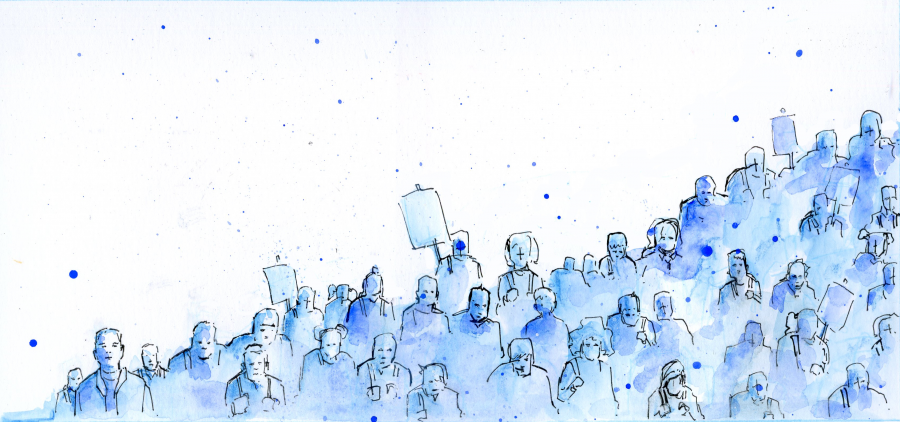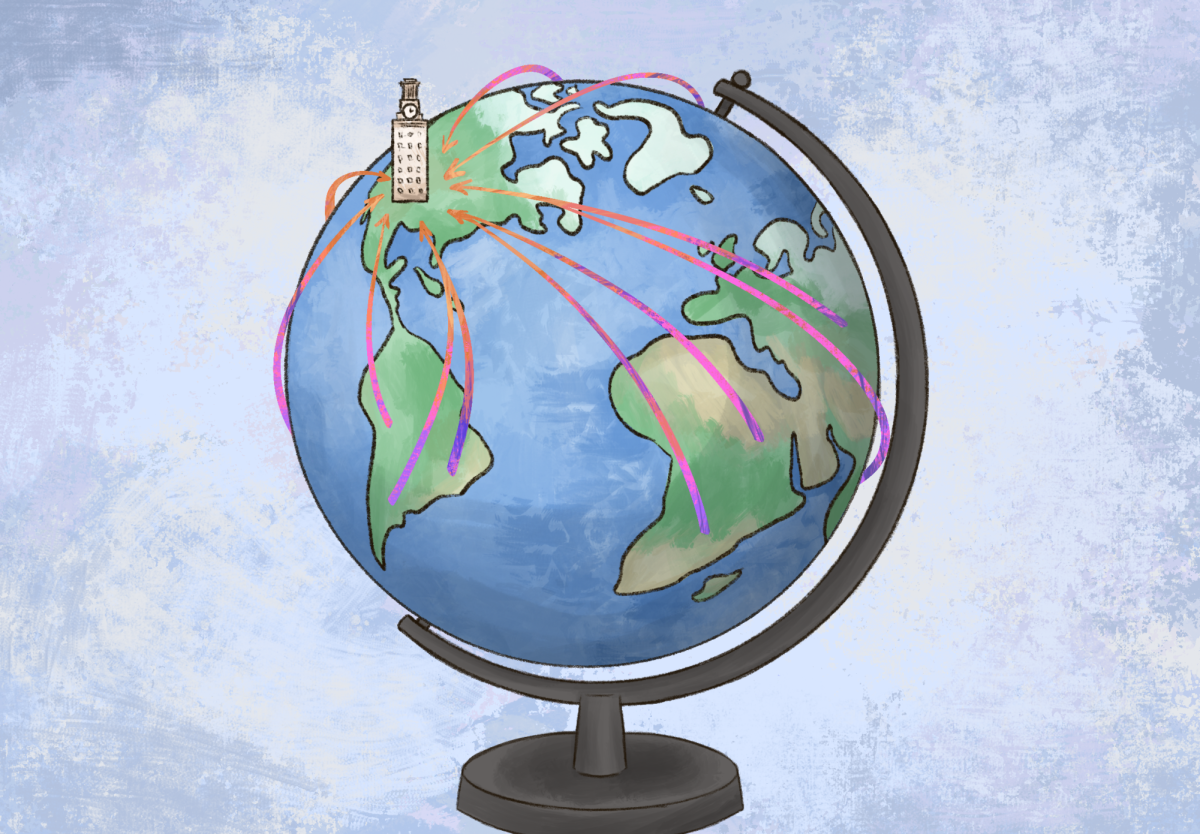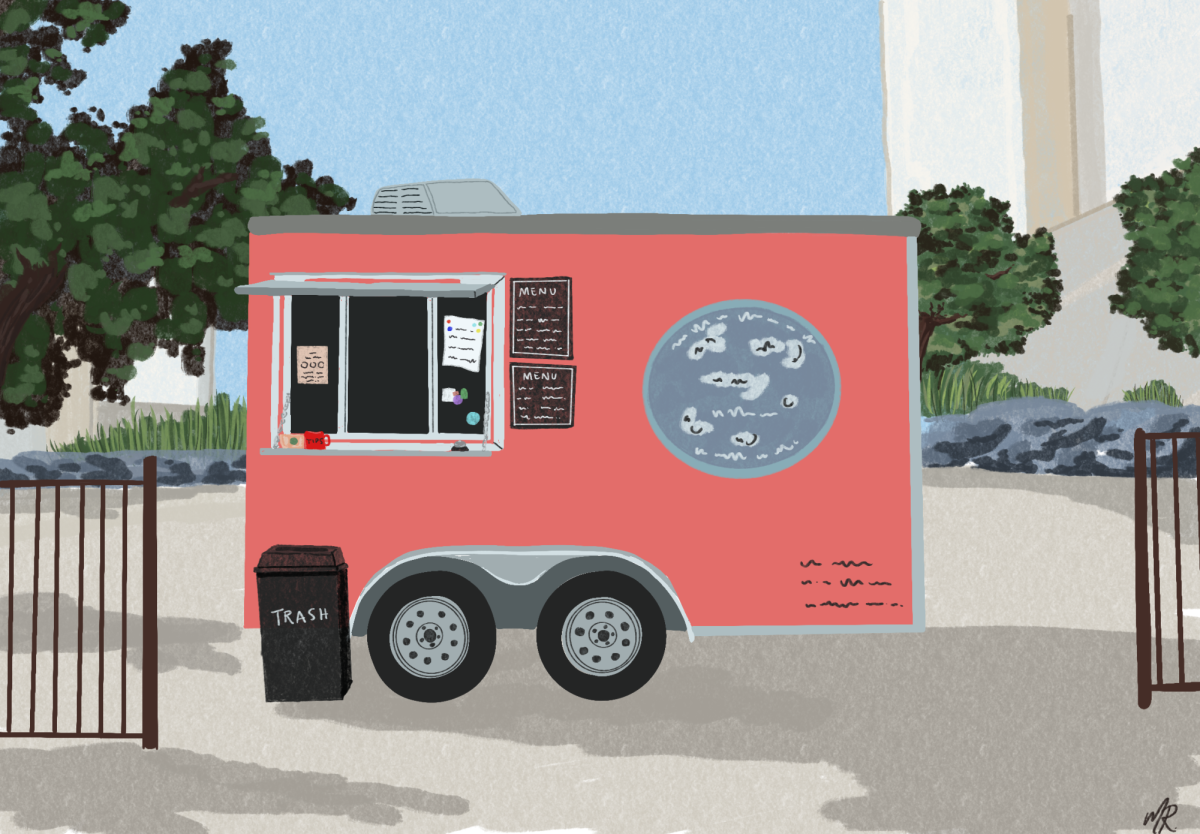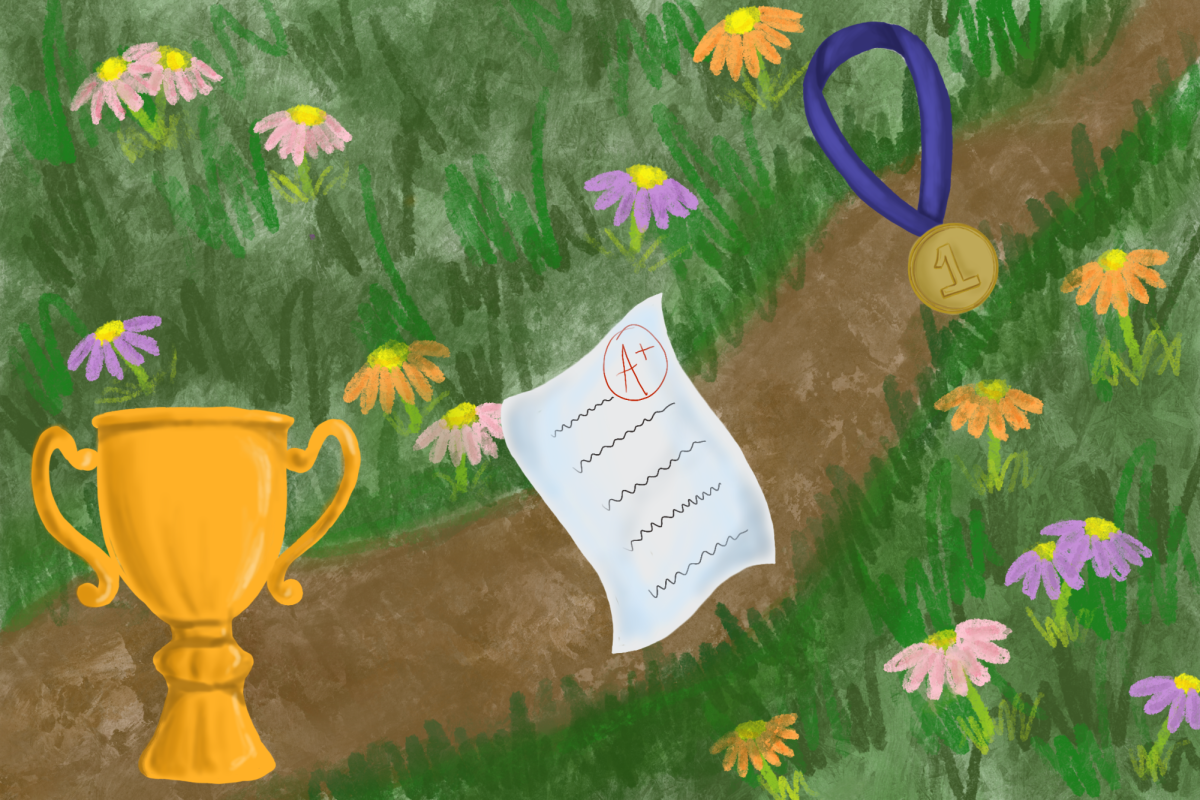The Daily Texan: What made you decide to get involved in the March for Our Lives movement?
Selina Eshraghi: Last semester, my childhood best friend committed suicide on her college campus. She was only 17, and she did it with a gun. I knew that there was something wrong with that picture. I knew that there was no way I felt comfortable that our society let something like that happen, that she could have had a gun while also dealing with a lot of mental health problems. And so I knew that I wanted to do something about it, and then after Parkland happened and there was more energy going into this whole gun control side of things, I knew that that was just the perfect place for me to start to use my voice.
DT: What was your perspective as a college student organizing this event?
SE: I grew up in Austin, so I’ve been to multiple marches before — the women’s march and the science march and stuff like that. There’s a huge sense of community that comes out of it, and I think that especially after the Austin bombings it felt really good for everyone to come together and recognize that we fight things as a community. We don’t let anyone go though anything alone. And even though we may come from a lot of different backgrounds, we all want the same thing and it’s just for a safer environment for our children — for everyone — while also making sure that we all have our rights. So it was really nice to be on the other side of things for once. There’s a lot of energy that you put into this without actually seeing what the day-of looks like. I felt on the day-of this whole catharsis of all the sleepless nights were totally worth it, and even if like 50 people showed up it would have been totally worth it. It gave me a lot of hope and motivation to know that I’m not in this alone and there are a lot of people who are standing with us in this cause.
DT: How do you think this impacts UT students?
SE: So of course as a lot of people know, UT had the first campus mass shooting, and that was a little bit over 50 years ago. And on top of that, campus carry is a huge conversation. I had the honor during the event of introducing a speaker, as well as speaking myself, and I introduced representative Gina Hinajosa, She’s a very vocal advocate on this issue, and a lot of people on campus are as well, like Ana Lopez, who founded Cocks Not Glocks. It’s all about making sure we all feel safe on campus. Going to school should be one thing, and it should be learning and feeling comfortable in the classroom, and for a lot of students, knowing the way that UT handles campus carry right now they just don’t feel comfortable. Even if we do feel comfortable, there is always an impending threat of, “Will someone run into my classroom and potentially hurt my classmates?” And I do have a lot of friends who, after Parkland, talk about how it is something that they think about often in class.
DT: How did this event differ from other protests you have attended?
SE: With things like the women’s march, it’s a movement that a lot of people can get behind. Regardless of your political ideologies, most people agree that despite your gender, we should all have equal rights. I think gun control is a bit more of a hotly debated topic. It was obvious the day of, because we had counter-protestors, and we had media that showed up with the sole purpose of figuring out how to lessen our voices that day. But I think it was difficult, because we had to make sure that we were sending and keeping our messaging strong, but also making sure that everyone understood what we were marching for. Because we’re actually not an anti-gun movement. We respect the second amendment and that right. But we’re also looking to make amendments that make it a safer environment for all students. The three pieces of our platform are banning the sale of assault weapons, banning the sale of high-capacity magazines, and closing a lot of the loopholes that exist in our current background check laws. That last one especially, there is a lot of support on both sides of the argument, and from both political parties, for closing those loopholes, and it’s just about making sure that instead of pointing blame and calling each other names, that we actually go get that done.
DT: Did you speak directly with any high school students? What were their impressions or thoughts during the March?
SE: We’ve all been working on this movement together for about a month, and a lot of these high school students are some of my best friends almost. I think there’s a different experience, because when you’re in college the majority of the people can vote. For the high school students, it’s mostly just the seniors who maybe can vote. And even then, they oftentimes aren’t aware of some of the less major elections, such as the runoffs coming this May. So to them it was a huge educational opportunity about ways they can still have their voice be heard, even without voting. Also knowing that there are a lot of ways that you can vote, outside of just voting for who our next president is going to be. It’s been really interesting watching their experience with the march versus mine, with them also having to be in high school. It’s way harder for them because oftentimes Wi-Fi blocks access to certain things, including in some schools they blocked access to the March for Our Lives website. It’s difficult to have the time in the day to put on a march with school still going on, and I’m lucky that I don’t have as many hours in the day dedicated to class. The main difference was that a lot of those high schoolers couldn’t vote, but they were finding out a lot of ways they were still able to make their voices be heard.
DT: Where do you see this movement going in terms of tangible change?
SE: Of course we want to see legislation passed that supports the three pillars of our movement. But outside of that I think hopefully more younger people are going to start to go out and vote and become politically active. During this whole organizational process during the march, I doubted whether it was worth it or not, or if it was more of us just providing an experience that makes a lot of people feel like they’ve made a difference by marching … Because there's a lot of money, surprisingly enough, that goes into a march, because there are al ot of permits you have to have and you gotta make sure APD is there and you gotta make sure you get portapotties and water and a stage, and its a lot of blood, sweat and tears. I looked up a lot of studies that show that there’s a lot of positive effect of marches, outside of keeping a topic in the media.A lot of times, people march, and that’s their first step into being more politically active. But from then they’re motivated to go on and outside of just voting, join activism groups and stuff like that. Outside of just passing legislation that is common sense gun control, I hope that we get more kids out to vote. Already, today in our group chat, I brought up a potential next step that we could be doing, and it blew up, and everybody’s so excited to keep going and keep working on this. And I’ve been in contact with the organizers of other Texas marches and we’re looking to do something that brings together Texas as a whole, and not just all of our separate cities. So I’m excited.
Eshraghi is a chemical engineering freshman.













